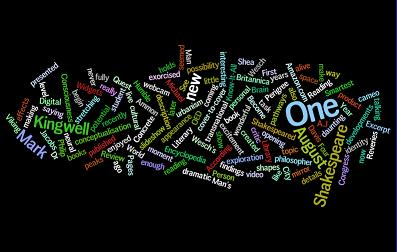October 7, 2008

iBrain: Surviving the Technological Alteration of the Modern Mind by Gary Small and Gigi Vorgan (Collins Living, 2008) is due out on Oct. 14.
Product Description
Their insights are extraordinary, their behaviors unusual. Their brains—shaped by the era of microprocessors, access to limitless information, and 24-hour news and communication—are remapping, retooling, and evolving. They’re not superhuman. They’re your twenty-something coworkers, your children, and your competition. Are you keeping up?
In iBrain, Dr. Gary Small, one of America’s leading neuroscientists and experts on brain function and behavior, explores how technology’s unstoppable march forward has altered the way young minds develop, function, and interpret information. iBrain reveals a new evolution catalyzed by technological advancement and its future implications: Where do you fit in on the evolutionary chain? What are the professional, social, and political impacts of this new brain evolution? How must you adapt and at what price?
While high-tech immersion can accelerate learning and boost creativity, it also has its glitches, among them the meteoric rise in ADD diagnoses, increased social isolation, and Internet addiction. To compete and thrive in the age of brain evolution, and to avoid these potential drawbacks, we must adapt, and iBrain—with its Technology Toolkit—equips all of us with the tools and strategies needed to close the brain gap.
See also: author’s website.
Comments (0)
- Uncategorized
October 2, 2008
“5 Great Science Books to Expand Your Mind” at ReadWriteWeb picks Godel, Escher. Bach by Hofstadter, Complexity by Waldrop, At Home in the Universe by Kauffman, The User Illusion by Norretranders, and Programming the Universe by Lloyd, with more reader suggestions in the comments.
Boldtype is a monthly book review email newsletter and this month’s issue is “Science: Traffic, Chance, Mutation,” with reviews of The Drunkard’s Walk, Traffic, Bonk, and more.
Comments (0)
- Uncategorized
September 14, 2008
Saul Smilansky is the author of Ten Moral Paradoxes, which is linked to at bloggingheads.
Smilansky is one of the contributors at Ethics Etc. and has some posts there on moral paradoxes.
Comments (0)
- Uncategorized
August 30, 2008
Our Knowledge of the Internal World (Lines of Thought) by Robert C. Stalnaker (Oxford University Press, September 15, 2008)
Product Description
On the traditional Cartesian picture, knowledge of one’s own internal world — of one’s current thoughts and feelings — is the unproblematic foundation for all knowledge. The philosophical problem is to explain how we can move beyond this knowledge, how we can form a conception of an objective world, and how we can know that the world answers to our conception of it. This book is in the anti-Cartesian tradition that seeks to reverse the order of explanation. Robert Stalnaker argues that we can understand our knowledge of our thoughts and feelings only by viewing ourselves from the outside, and by seeing our inner lives as features of the world as it is in itself. He uses the framework of possible worlds both to articulate a conception of the world as it is in itself, and to represent the relation between our objective knowledge and our knowledge of our place in the world. He explores an analogy between knowledge of one’s own phenomenal experience and self-locating knowledge — knowledge of who one is, and what time it is. He criticizes the philosopher’s use of the notion of acquaintance to characterize our intimate epistemic relation to the phenomenal character of our experience, and explores the tension between an anti-individualist conception of the contents of thought and the thesis that we have introspective access to that content. The conception of knowledge that emerges is a contextualist and anti-foundationalist one but, it is argued, a conception that is compatible with realism about both the external and internal worlds.
Comments (0)
- Uncategorized
August 8, 2008

Wordle creates word clouds from text. You can paste in a block of text or provide a url that will generate a word cloud from the feed. Above is the word cloud from mymindonbooks.com (click the image for a more readable view); since it comes from the feed it has just the last few posts. So “snapshots” could be taken of a blog or website over time.
Comments (0)
- Uncategorized




